Smart Technology is Making you Dumb
Of course Smart Technology, our mobile phones and access to the Internet is revolutionizing the world. There is no doubt about the power of information but is it really making us smarter human beings? Or is it creating brains full of loose connections setting us up for early dementia?
The answer is not as simple as one might think. Most reasonably aware people recognize that it is simply a tool, and how you use the tool is most important but science is pointing to new evidence about how information is processed in our brains that should cause for alarm in the use of smart technology.
Nicholas G. Carr is a prominent American author of several books criticizing Smart Technology and its negative effects in his books Does IT Matter? Information Technology and the Corrosion of Competitive Advantage and The Shallows: What the Internet Is Doing to Our Brains. Carr argues that technology is simply making us dumber because of the primary way information transfers into knowledge. It reduces critical thinking, attention, and reduces our ability to transfer valuable information into our long-term memory.
Some definitions for the following:
- Working memory: Trying to keep something in your mind short term (Example: going from one room to anther to do something and forget what you were going to do.
- Spatial memory: The memory that allows us to navigate our way through the world. To find your car in the parking lot or find your keys in your house. (London Taxi Driver PET Scan study).
- Long-term Memory (LTM): Is the stage where information is held indefinitely.
Carr points out how memory is retained and retrieved which is especially important in the aging brain. The 2012 Arizona State University public lecture series entitled “Living Beyond 100” has evidence that supports Carr’s view. In the lecture titled [Beyond-100-The Aging of the Brain] Professor of Neurology Carol Barnes claims that memory is stored in our synaptic connections and the strength of those connections makes a difference if we are going to able to retrieve information or not. Barnes said “Although you don’t lose neurons, our synaptic connections get weakened and lost during aging.”
Some science to support this claim originated in 1949 when Donald Hebb predicted that memory is related (stored) in the synaptic connections. Hebb’s prediction that memory is stored in the synaptic connections became further verified by Terje Lomo with his discovery termed Long-term Potentiation. Many scientists have now demonstrated in rat experiments that synapses can become stronger improving spatial memory hence the well-known phrase “cells that fire together wire together”.
Some Brain Facts:
- Human Brain: Weight, approximately 1500 grams +/- 100 grams.
- Neurons: Approximate count as of 2010: 86 Billion.
- Synaptic Connections: Each of the neurons has on average 7,000 synaptic connections to other neurons making trillions of connections.
- A neuron, also known as a nerve cell, is an electrically excitable cell that receives, processes, and transmits information through electrical and chemical signals.
- Neurons do not divide. (The process of neurogenesis then involves a final cell division of the parent neural stem cell, which produces daughter neurons that will never divide again. Most neurons of the human central nervous system live the lifetime of the individual but there is now strong evidence that new cells can emerge in the hippocampus and olfactory bulb.)
- A typical neuron consists of a cell body or soma, dendrites, and an axon.
- We typically don’t lose neurons but synaptic connections become weakened or lost over time.
- Synapses can become stronger improving spatial memory.
Synapses can become stronger and the strength of a connection makes it more likely to be retained maintaining strong cognitive ability throughout life. How information is obtained is also critical if it is to be stored for later use. Just packing your brain full of information is of no use if you can’t recall it, if you can’t retrieve it and bring it to your working memory for discussion or problem solving.
This is a potential problem with the way many use smart technology. These social networking platforms encourage bad habits of information gathering that set the brain up for weak connections. News Media is similar in that it is short bites of information that is rarely retained. The only thing you can remember about the news is the stuff you see over and over again which is not informing you but programming you, and to a negative bias as well. Think about it, in fact think about people you know who watch the news everyday as their primary source of information, not only will they view the world as negative but you will also be able to notice they can’t remember small details well. This whole habit of quick bites of information does not help build strong brain connections.
Media is not a source of knowledge, it is an opinion maker! Without depth of context it is easy to draw wrong conclusions, create misunderstanding and just be flat out wrong. Not only is the information superficial but it sets up the false sense of knowing or the delusion of being smart. Professor Frank Keil reveals data from a study that demonstrated people think they are smarter by just having “access” to the Internet. Of course just having an internet connection doesn’t make you smarter but that is what most unconsciously believe. This is a delusion and a form of intellectual arrogance that will prevent or limit you from gaining knowledge or becoming wise. This is also not good for healthy relationships either.
The above screenshots come from the Intellectual Humility MOOC created by the University of Edinburgh Philosophy Department. These particular videos are available on YouTube [V. Introduction to Humility and human cognition] but highly recommend the full series and or take the MOOC.
V. Humility and human cognition. Part 1 Introduction (Prof. Frank Keil)
V. Humility and human cognition. Part 2 Humility, arrogance and base rate neglect (F. Keil)
V. Humility and human cognition. Part 3 Developmental over optimism (Prof. Frank Keil)
V. Humility and human cognition. Part 4 The illusion of explanatory depth (Prof. Frank Keil)
V. Humility and human cognition. Part 5 Illusions of argument justification _ insight (F. Keil)
V. Humility and human cognition. Part 6 Illusions of the outsourced mind (Prof. Frank Keil)
To quote Carr again, “information is not knowledge, it’s not intelligence, and it’s certainly not wisdom.” To gain, retain and turn information into knowledge or wisdom we need to fully engage with information, we need to think about it, internalize it, dialogue about it and contemplate it if we want to turn it into knowledge that is retrievable for action. Getting bits and bytes of information through your smart phone are highly unlikely to be retained and not likely to strengthen your synaptic connections or the relationships involved.
There has been a radical shift in thinking about the human brain, its plasticity and its adaptability. Fifty years ago experts thought the brain passively deteriorates. Now we know the brain actively adapts and can remain strong throughout long life with cognitive training and good information processing habits. Doing crossword puzzles is not going to help you find your keys but education and lifelong learning is said to be the top predictive factors for cognitive health.
Personal Information & Privacy
Then come the issue of privacy, personal information and companies mining our personal data to manipulate us into buying their products, and worse changing our views buy plugging information in smart, creative and subtle ways without us even recognizing it.
That is the work of con artists! If your not aware of how a con artist works then do a little study and you will find they operate and manipulate based on information they gather about you, what you like and what you want. I was completely surprised when I had a look at some of my friends profiles on the popular China WeChat program. I don’t use the program for all the above reasons and more but was curious as if some of my employees were spending lots of time socializing on their mobile phones and not focused on their work.
When I saw my one of my employees profile I was shocked. This girl posts everything a con artist, including all the marketing companies could use to change her opinions about the world and have her buying a bunch of shit she doesn’t need. She posts daily about where she has been, what she has been doing and everything she likes and dislikes. After reading the last few months I had a completely new understanding of this employee. I am not a psychologist but had some training and what this person revealed I could easily see that marketing companies, con artists and worse, people out to steal identities could take full advantage of this person and mess with their life.
I then asked to see many of my other friends profiles and found a lot less posts of course but very similar information. People post things they like, little comments and general information it is very easy even for an armature to create a profile and manipulated people as they wish.
If that is not scary enough just look at what you agree to when you install their APP. The following is what you agree to when you click “Agree to Terms” before downloading the very popular Mobile App WeChat:
In case your not reading the smaller print:
- Read and write your profile and contact data.
- Read all your SMS or MMS (not just the APPs messages but all messages.)
- Control connections and “full” Internet control.
- Act as an “Account Authenticator” manage and use the credentials of the account.
- Modify and or Delete SD Card contents.
- Read your phone state and identity.
- Change your audio settings, “Record audio” and take pictures and videos. I am not sure if I am reading this right but are they saying they can control your phone and use your camera to take pictures, or video and record what is being said or done in real-time without your permission?
How well do you trust your Mobile APP company?
And is not just about trusting your Social Media or Smart Tech company because they themselves may be trust worthy but others can hack into and or get data in other ways. I am sure most of you are aware of the Facebook / Cambridge Analytica scandal. If not there is a lot on YouTube or the following are a couple good summaries on the subject.
[Cambridge Analytica whistleblower ‘We spent $1m harvesting millions of Facebook profiles’]
[Facebook whistleblower We tested Trump slogans in 2014]
We have to assume there are many data collecting companies and or governments that will intentionally or unintentionally misuse human privacy rights, the apps data and or our personal information without our consent to market products or shape our way of thinking. You need to take personal responsibility on what data you share on the internet or any app and if possibly just avoid using them all together. Join the Delete Facebook campaign and “uninstall” these social media APP’s unless you have a really good reason to use them and if so be careful of what you share and reveal about yourself. Certainly “uncheck” any options to receive additional information, advertisements or any other third party soliciting.
Conclusion
It is likely that the future will be a symbiotic relationship with smart technology. The “Semantic Age” as described by Paul Cohen is where machines know you well enough to predict your responses, finish typing your sentences, find the web pages you want, recommend books, music and products you would love to have. At many levels technology will keep you in the game (life) with a hearing aid, pace maker or some sophisticated AI medical interface that keeps your doctor informed or keeps you alive.
But Smart Technology cannot treat us as the unique individuals we are from our life’s experiences and memories. It does not help us build deep meaningful human relationships. My article on [Applications from the Science of Happiness] showed that quality relationships is key to having a meaningful long and healthy life but it is not about how many relationships you have but the quality of them.
Smart Technology is a great tool if used wisely, it can enhance our lives and help make some things more efficient but needs some awareness and proper applications not to slip into a life of sound bites and loose connections.
A good friend of mine once said alcohol is for smart people referring to how destructive it can be if you don’t have a good handle on it and your not aware of when it is having a negative impact on your life. The same may be said about smart technology if not used wisely.
“Smart Technology is for Smart People”
Additional Resources:
In the Intelligence Squared debate [Smart-Technology-is-Making-us-Dumb-IQ2-Debate] you will notice that the “for the motion side” brings up many excellent points on just how problematic smart technology can be while the “against the motion side” simple argues how valuable it can be missing the whole point of the debate in my view and even still half the people agree it is making us dumber. If they were to ask “Is the misuse of Smart Technology making us dumber” then I am sure it would be closer to unanimous.
Arizona University Public Lectures 2012 Series on Living Beyond 100
[Beyond-100-Information and Immortality]
[Beyond-100-The Aging of the Brain]
[Beyond-100-The Biology of Aging Why Our Bodies Grow Old]
[Beyond-100-Living Beyond 100 Can We, and What If We Do]
[Beyond-100-Repair, Regeneration and Replacement Revisited]
University of Washington Department of Psychology
Allen L. Edwards Psychology Series
[How We Remember, Why We Forget, and Why It Matters, Part 1 – 2012]
[How We Remember, Why We Forget, and Why It Matters, Part 2 – 2012]
Not directly related to Smart Technology but a more in-depth understanding of how memory works.
[Ecopsychology Reinventing the Human-Nature Relationship in the Digital Age, Part 1 – 2013]
[Ecopsychology Reinventing the Human-Nature Relationship in the Digital Age, Part 2 – 2013]
Not directly related to Smart Technology but two excellent talks that reveal the connection between the new digital world and nature, that humans evolution in nature is changing and the importance of keeping nature in our lives as we adapt to the new digital world.
[Technology _ the human mind _ Susan Greenfield _ TEDxOxford]
[Susan Greenfield – Internet & Mind]
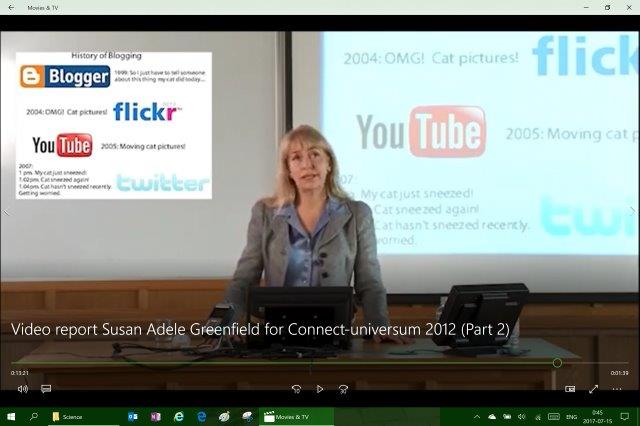
[You can grow new brain cells. Here’s how _ Sandrine Thuret]

[Why I Don’t Use A Smart Phone _ Ann Makosinski _ TEDxTeen]
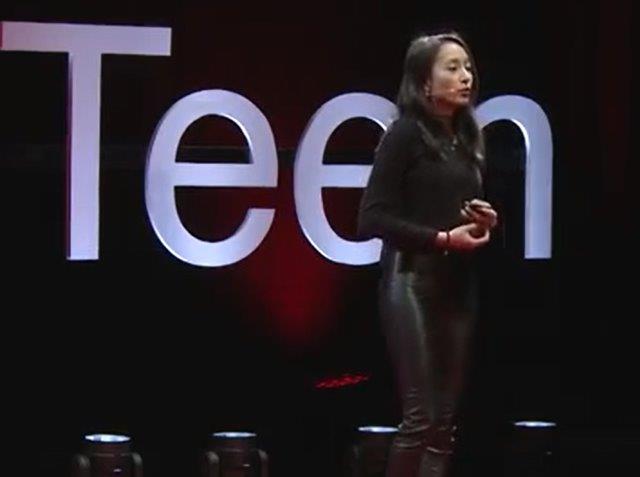
A young girls story how not having a mobile phone for most of her teens, growing up having to make her own toys all part of what helped her be so creative and innovative at a very young age.


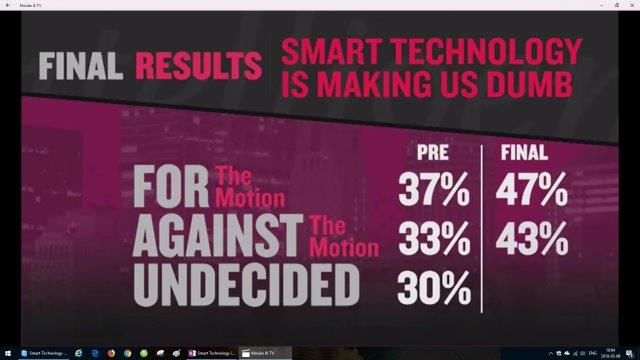
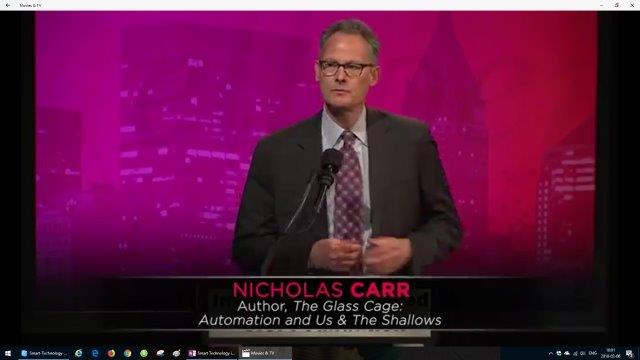
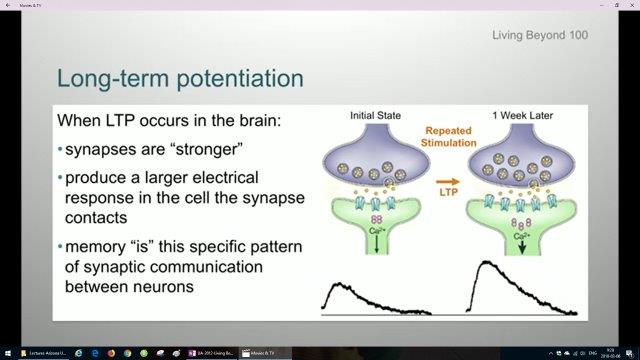
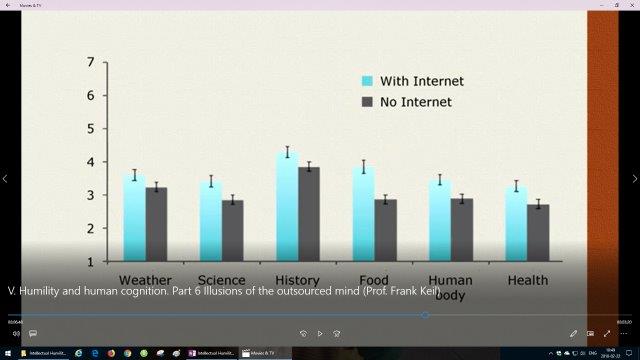
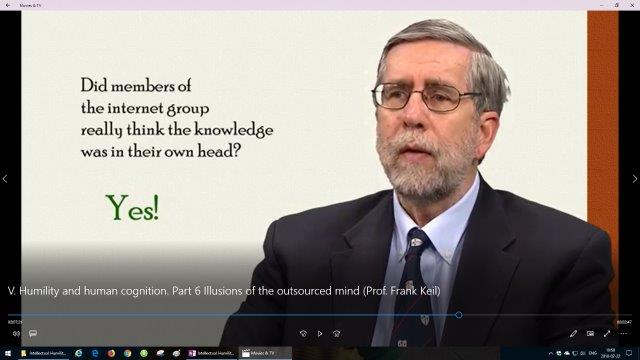

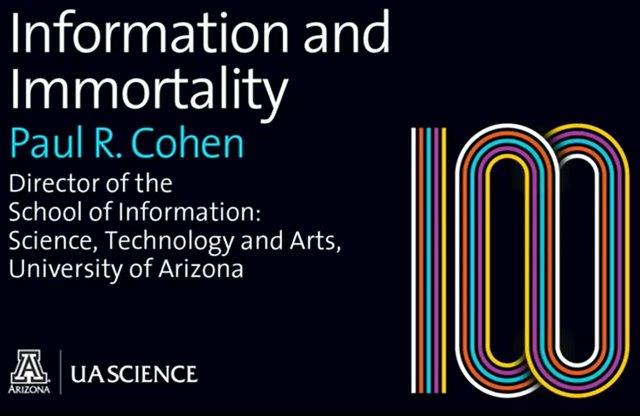
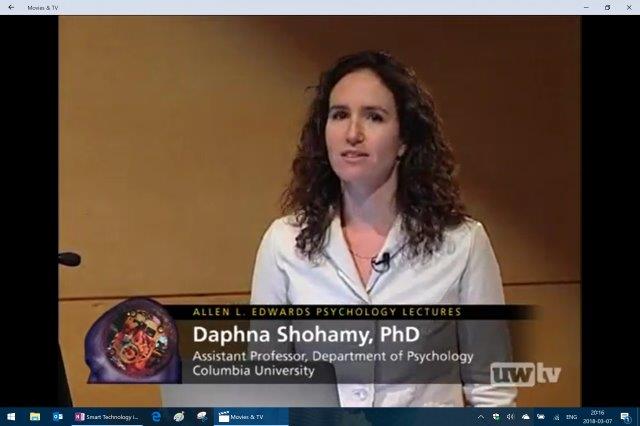
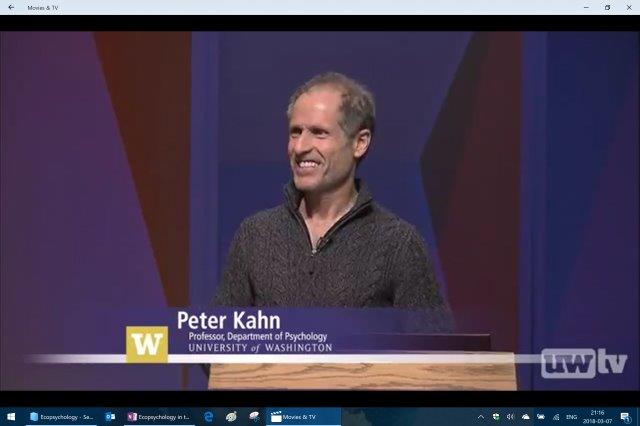
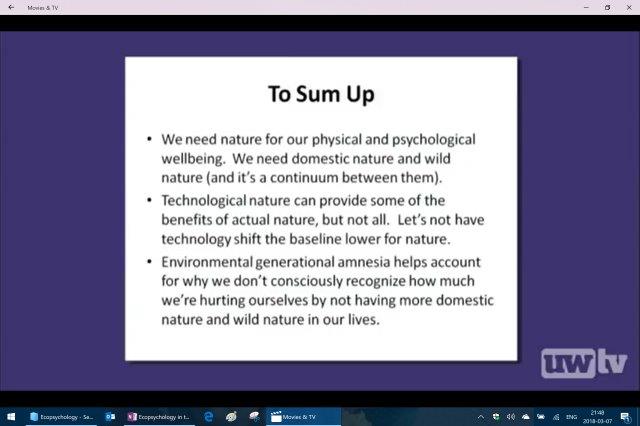
Definitions key to discussions: